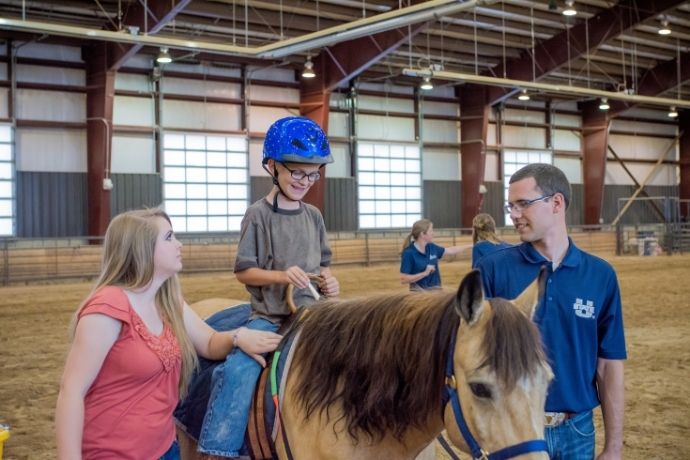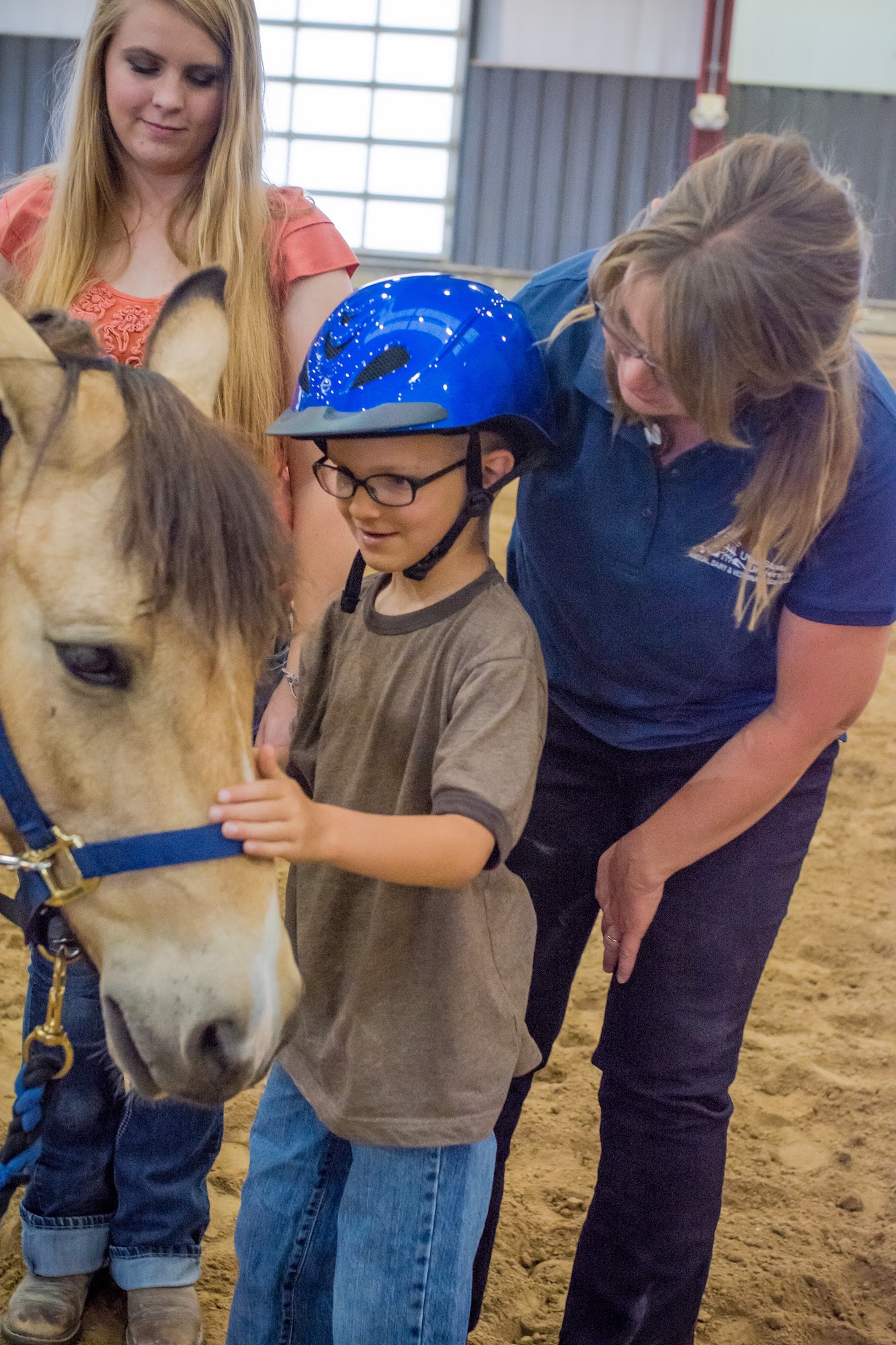New Equine-human Science Building Under Construction
By Lynnette Harris | March 16, 2022

A 300% increase in students enrolled in a program in less than five years is extraordinary. But when that program is in equine and human science, the need for space to accommodate horses and humans is also extraordinary. To support students, faculty, and community members who are served by equine-assisted services and activities programs, construction is underway on a new Equine-human Science Center at the College of Agriculture and Applied Sciences’ Animal Science Farm in Wellsville. Among the activities the new building will house is RideAbility, adaptive riding for people of all ages who have been diagnosed with physical or cognitive disabilities. Participants in the program have conditions including autism, Down syndrome, cerebral palsy, and traumatic brain injuries and adaptive riding can help improve their balance, strength, and flexibility. In addition to inducing physical improvements, activities with horses can have calming and relaxing effects on people working through mental health issues.
Other activities in need of the new space pair military veterans with horses for riding and ground-based activities that have become important to veterans dealing with emotional and physical trauma and substance use disorders. The Equine Encounters program helps veterans and provides USU students who are earning degrees or minors in equine-human science with important practical experience. The program has received a third year of funding from the U.S. Department of Veterans Affairs.
The new facility will also be the site of instructional clinics for students and community equestrians, opportunities for more research, additional training and conditioning space for horses, and continuing education training and certification workshops for professionals.
Assistant Professor Judy Smith notes there will be a full-sized dressage arena to support para-dressage riders. The program’s riding simulator will also move to a new simulator studio to support instructor development and research. The simulator is one of fewer than 10 in use in the U.S. and the first used in a university setting.
Lynnette Harris
lynnette.harris@usu.edu